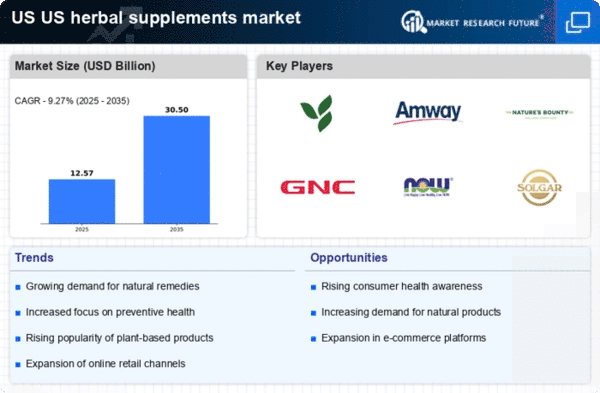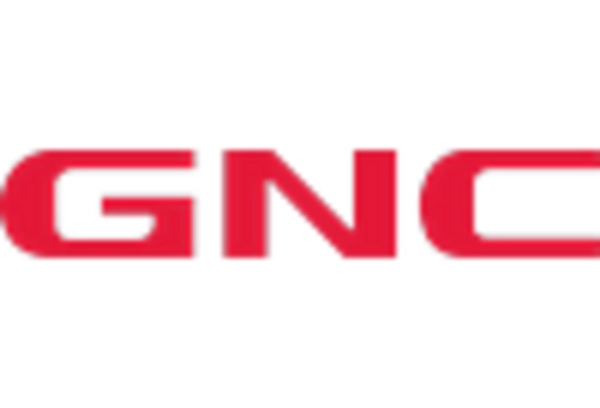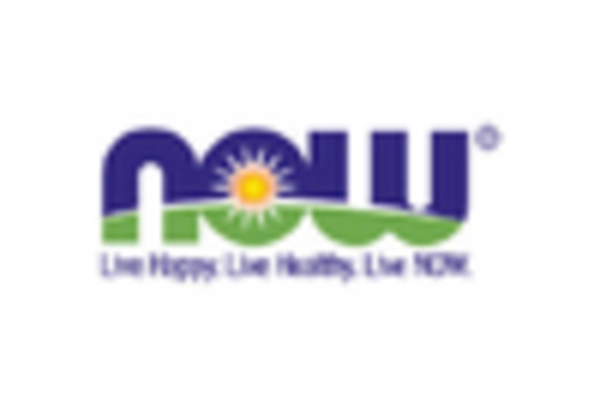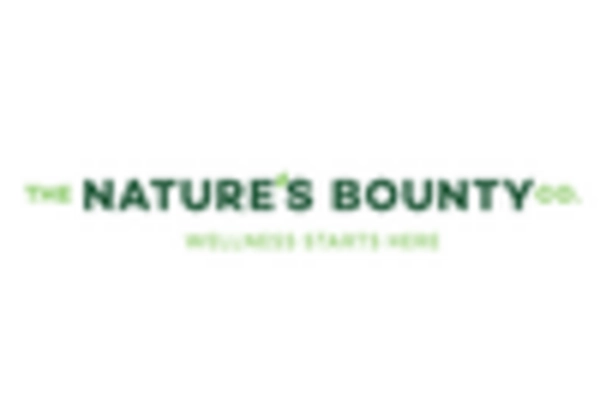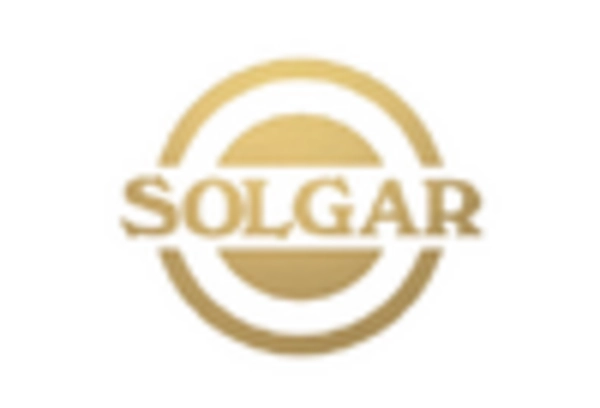Shift Towards Personalized Nutrition
The herbal supplements market is witnessing a significant shift towards personalized nutrition, where consumers are increasingly seeking tailored health solutions. This trend is fueled by advancements in technology, enabling individuals to better understand their unique health needs. As a result, companies in the herbal supplements market are developing products that cater to specific dietary requirements and health goals. For instance, the market for personalized supplements is projected to grow at a CAGR of 8% over the next five years. This focus on customization is likely to enhance consumer engagement and drive growth within the herbal supplements market.
Expansion of Retail Distribution Channels
The herbal supplements market is experiencing an expansion of retail distribution channels, which is facilitating greater accessibility for consumers. Traditional brick-and-mortar stores, alongside online platforms, are increasingly stocking a diverse range of herbal products. This expansion is crucial, as it allows consumers to easily access herbal supplements, thereby driving sales. Recent statistics indicate that online sales of herbal supplements have surged by 25% in the past year, highlighting the importance of e-commerce in the herbal supplements market. This trend suggests that as distribution channels continue to grow, the market will likely see sustained growth.
Rising Popularity of Preventive Healthcare
The herbal supplements market is benefiting from the rising popularity of preventive healthcare practices among consumers. As individuals become more proactive about their health, there is an increasing demand for products that support overall wellness and disease prevention. This trend is reflected in the growing sales of herbal supplements, which have seen a rise of approximately 15% in the last year alone. Consumers are gravitating towards herbal options that promise to enhance their quality of life and longevity. Consequently, this shift towards preventive health measures is expected to significantly impact the herbal supplements market in the coming years.
Growing Consumer Awareness of Herbal Benefits
The herbal supplements market is experiencing a notable surge in consumer awareness regarding the health benefits associated with herbal products. This heightened awareness is largely driven by increased access to information through digital platforms and social media. Consumers are becoming more informed about the potential advantages of herbal supplements, such as improved immunity and enhanced mental clarity. According to recent data, approximately 60% of consumers in the US actively seek out herbal supplements for their perceived health benefits. This trend indicates a shift towards natural alternatives, which is likely to bolster the herbal supplements market as more individuals prioritize holistic health solutions.
Increased Regulatory Support for Herbal Products
The herbal supplements market is benefiting from increased regulatory support aimed at ensuring product safety and efficacy. Regulatory bodies are implementing more stringent guidelines for herbal products, which is fostering consumer trust and confidence. This regulatory environment is crucial for the herbal supplements market, as it encourages manufacturers to adhere to high standards of quality. As a result, consumers are more likely to choose herbal supplements that are backed by regulatory approval. This trend is expected to enhance market growth, as consumers prioritize safety and efficacy in their health choices.


